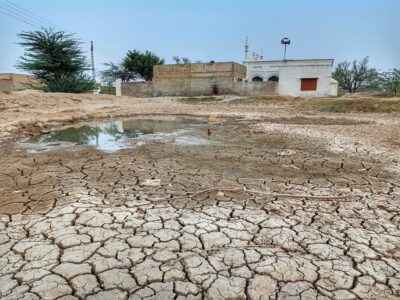In Africa, millions rely directly on rainfed agriculture for their livelihoods; climate-sensitive diseases are a major public health problem; and climate-related disasters regularly threaten development gains. Yet climate information often fails to reach them.
The partners behind the publication Climate Risk Management in Africa: Learning from Practice would like to see this change.
Case studies in this new publication — which was produced by several African and global partners — highlight efforts already underway that are helping populations better adapt, and show that when climate information successfully reaches vulnerable populations, it can be used to improve livelihoods and economies, and even save lives.
The publication was launched at the African Union Heads of State Summit, which focused on two central themes: Science, Technology and Scientific Research for Development; and Climate Change in Africa.
The central mission of this publication is to bring these efforts to the surface, and to inform key stakeholders, including the media, government agencies, and others, about the positive and negative experiences of new and ongoing examples of climate risk management in Africa.
The publication is the inaugural issue of a new series, Climate and Society, which is managed by the International Research Institute for Climate and Society (IRI), part of The Earth Institute of Columbia University.
“The time has come to showcase the innovation and commitment with which people are working to address climate change and helping vulnerable populations cope,” said Ahamadu Babagana, Director of the Department of Rural Economy and Agriculture at the African Union. “And there is no better place to start than with this critical publication focusing on Africa.”
Participating partners also hope that the publication will serve as a key resource for climate-related planning in Africa, particularly in regard to disease mitigation and the management of water and other vital resources.
The publication analyzes five cases studies of efforts to effectively address the risks associated with a changing climate. These case studies include:
- Food security in Ethiopia
- Flood risk management in Mozambique
- Malaria management in Southern Africa
- Agriculture in Mali (Agrometeorology)
- Drought insurance in Malawi
The inaugural publication is the product of a partnership that includes the African Union, the African Development Bank, the United Nations Economic Commission for Africa, the Global Climate Observing System, and the International Research Institute for Climate and Society. These partners believe that learning to better manage climate variability today will increase the capacity to adapt to future climate change.
“This publication, it is important to note, is not only by Africans and for Africans,” says Stephen Zebiak, Director-General of the IRI, “we hope that it will also serve as a resource for the rest of the world on how science and technology can be utilized today to address climate risks today, as well as those of the future. This publication would not have been possible without the commitment and leadership of our African partners.”
The first issue was funded by the UK Department for International Development (DFID) and the U.S. National Oceanic and Atmospheric Administration (NOAA).
Copies of the publication “Climate Risk Management in Africa: Learning from Practice” are posted at here. PDF versions of the full document are available online in French and English, as well as PDF versions of the policy brief in all four AU languages (French, Portuguese, Arabic and English).
About The International Research Institute for Climate and Society
The International Research Institute for Climate and Society (IRI), part of the Earth Institute at Columbia University, aims to enhance society’s ability to understand, anticipate and manage the impact of seasonal climate fluctuations, so as to improve the quality of life and the environment. From environmental monitoring and forecasting to climate-related risk management tools and practices in water resources, public health, agriculture, and food security, IRI and its partners focus on opportunities to build capacity for bringing climate information into regional planning and decision-making. For more information, visit http://iri.columbia.edu/



